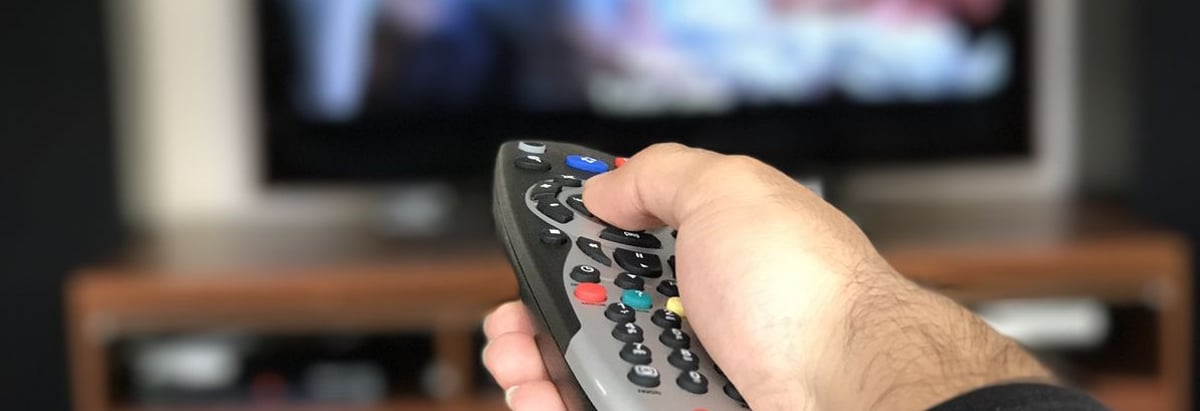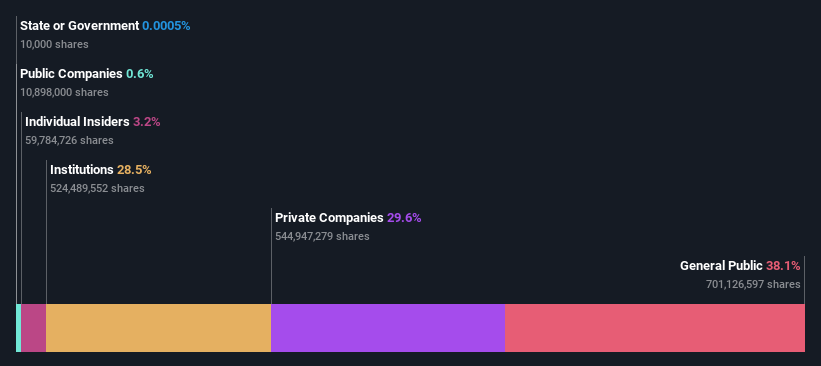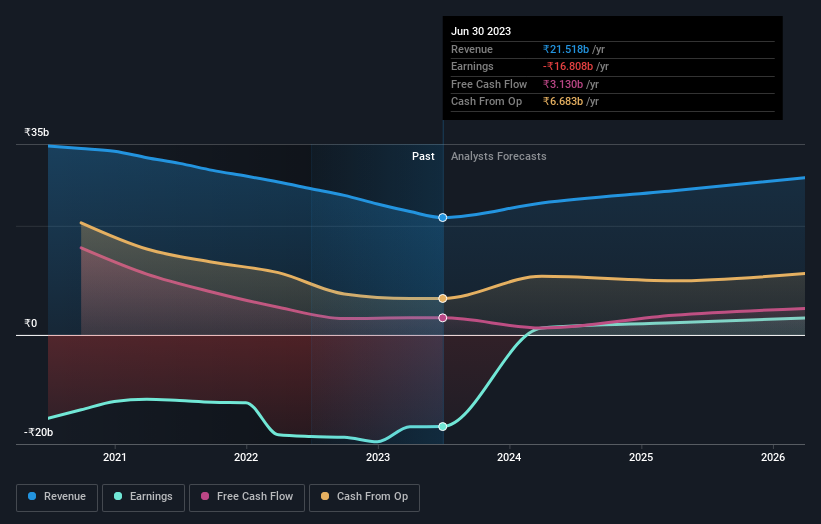Dish TV India Limited's (NSE:DISHTV) biggest owners are individual investors who got richer after stock soared 12% last week

Key Insights
- Dish TV India's significant individual investors ownership suggests that the key decisions are influenced by shareholders from the larger public
- 50% of the business is held by the top 12 shareholders
- Institutional ownership in Dish TV India is 28%
Every investor in Dish TV India Limited (NSE:DISHTV) should be aware of the most powerful shareholder groups. And the group that holds the biggest piece of the pie are individual investors with 38% ownership. In other words, the group stands to gain the most (or lose the most) from their investment into the company.
As a result, individual investors collectively scored the highest last week as the company hit ₹36b market cap following a 12% gain in the stock.
In the chart below, we zoom in on the different ownership groups of Dish TV India.
See our latest analysis for Dish TV India

What Does The Institutional Ownership Tell Us About Dish TV India?
Many institutions measure their performance against an index that approximates the local market. So they usually pay more attention to companies that are included in major indices.
We can see that Dish TV India does have institutional investors; and they hold a good portion of the company's stock. This implies the analysts working for those institutions have looked at the stock and they like it. But just like anyone else, they could be wrong. If multiple institutions change their view on a stock at the same time, you could see the share price drop fast. It's therefore worth looking at Dish TV India's earnings history below. Of course, the future is what really matters.

Hedge funds don't have many shares in Dish TV India. Ambit Flowers Asset Reconstruction Co. Private Limited is currently the largest shareholder, with 24% of shares outstanding. In comparison, the second and third largest shareholders hold about 6.0% and 3.4% of the stock.
Looking at the shareholder registry, we can see that 50% of the ownership is controlled by the top 12 shareholders, meaning that no single shareholder has a majority interest in the ownership.
While it makes sense to study institutional ownership data for a company, it also makes sense to study analyst sentiments to know which way the wind is blowing. While there is some analyst coverage, the company is probably not widely covered. So it could gain more attention, down the track.
Insider Ownership Of Dish TV India
The definition of company insiders can be subjective and does vary between jurisdictions. Our data reflects individual insiders, capturing board members at the very least. Management ultimately answers to the board. However, it is not uncommon for managers to be executive board members, especially if they are a founder or the CEO.
I generally consider insider ownership to be a good thing. However, on some occasions it makes it more difficult for other shareholders to hold the board accountable for decisions.
We can report that insiders do own shares in Dish TV India Limited. As individuals, the insiders collectively own ₹1.2b worth of the ₹36b company. Some would say this shows alignment of interests between shareholders and the board. But it might be worth checking if those insiders have been selling.
General Public Ownership
With a 38% ownership, the general public, mostly comprising of individual investors, have some degree of sway over Dish TV India. This size of ownership, while considerable, may not be enough to change company policy if the decision is not in sync with other large shareholders.
Private Company Ownership
Our data indicates that Private Companies hold 30%, of the company's shares. It's hard to draw any conclusions from this fact alone, so its worth looking into who owns those private companies. Sometimes insiders or other related parties have an interest in shares in a public company through a separate private company.
Next Steps:
While it is well worth considering the different groups that own a company, there are other factors that are even more important. Take risks for example - Dish TV India has 2 warning signs (and 1 which is potentially serious) we think you should know about.
If you are like me, you may want to think about whether this company will grow or shrink. Luckily, you can check this free report showing analyst forecasts for its future.
NB: Figures in this article are calculated using data from the last twelve months, which refer to the 12-month period ending on the last date of the month the financial statement is dated. This may not be consistent with full year annual report figures.
New: Manage All Your Stock Portfolios in One Place
We've created the ultimate portfolio companion for stock investors, and it's free.
• Connect an unlimited number of Portfolios and see your total in one currency
• Be alerted to new Warning Signs or Risks via email or mobile
• Track the Fair Value of your stocks
Have feedback on this article? Concerned about the content? Get in touch with us directly. Alternatively, email editorial-team (at) simplywallst.com.
This article by Simply Wall St is general in nature. We provide commentary based on historical data and analyst forecasts only using an unbiased methodology and our articles are not intended to be financial advice. It does not constitute a recommendation to buy or sell any stock, and does not take account of your objectives, or your financial situation. We aim to bring you long-term focused analysis driven by fundamental data. Note that our analysis may not factor in the latest price-sensitive company announcements or qualitative material. Simply Wall St has no position in any stocks mentioned.
About NSEI:DISHTV
Dish TV India
Provides direct to home (DTH) and teleport services in India.
Fair value with moderate growth potential.

